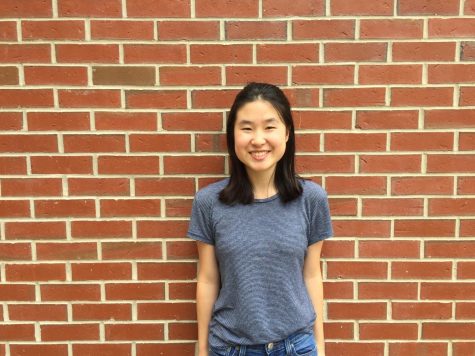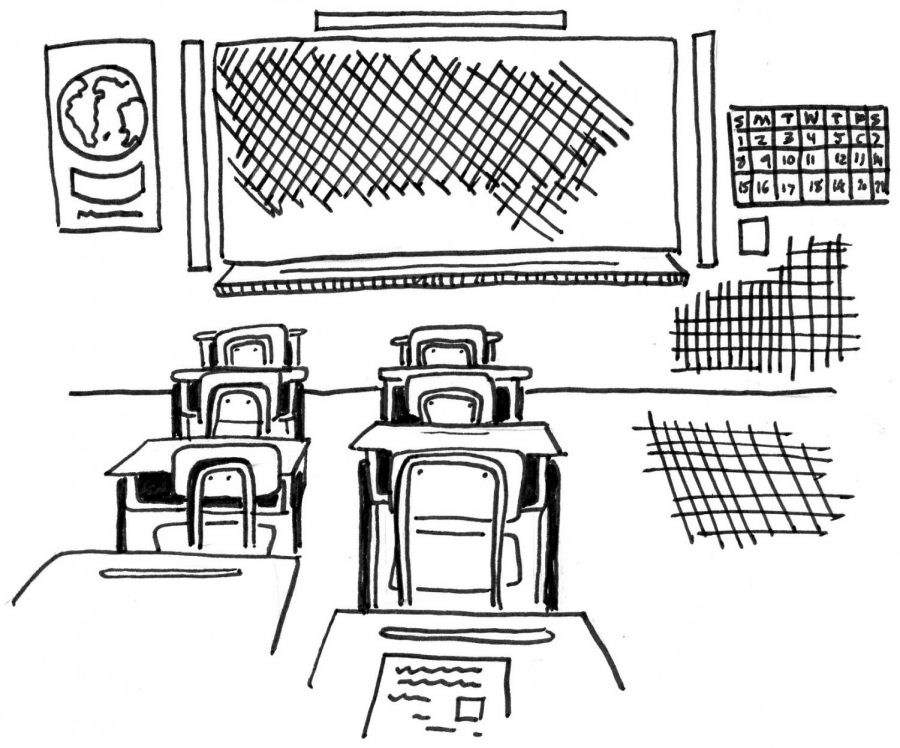On the night of August 13, an Algonquin alum, Matthew Colligan (‘08), 23, marched with white supremacists, carrying tiki torches and chanting “you will not replace us”, at a Charlottesville rally to protest the taking down of a Confederate statue. His face was clearly identifiable among the other white men in one of the most highly circulated photos from the night.
His classmate, Alexis Morin, published an editorial on hellogiggles.com, where she responds to finding out that a former classmate was among those who marched with white supremacists.
Morin, who works in education reform, argues that although her school and hometown town did not actively encourage her classmate to become a neo-Nazi, she doesn’t believe “we can’t say with integrity that we did all we could to prevent it.” She says that there weren’t “any concerted efforts to teach anti-racism to the students in our virtually all-white suburban school.”
The lack of awareness caused her to ask, “are we really surprised?”
Because of her school’s “passive approach” to racial injustice, Morin believes her and her white classmates “graduated ignorant and insensitive to the realities of life for many fellow Americans,” feeling unprepared to engage in a multi-racial, multi-ethnic society. She calls on schools to interrupt racist beliefs, instead of taking a passive approach to racial injustice, especially in predominantly white schools like Algonquin.
“There’s no more clear place where my hometown has failed to confront racial injustice than in our schools,” Morin wrote.
Morin describes how teachers in her school district were met with opposition from parents and administrators when tried to embed such teachings in the classroom. For Morin, an anti-racism curriculum should be incorporated to prevent individuals like Colligan from developing and harboring white supremacist beliefs.
A school in Mississippi wanted to ban teaching “To Kill a Mockingbird” in the classroom because “some of the language “makes people uncomfortable.” General John Kelly faced outrage from the public when he described Robert E. Lee as an “honorable man.” MetroWest Daily News has reported that “Massachusetts schools wrestle with hate incidents.” In light of recent events, alums, teachers and students see the need for an emphasis of discussing current issues in the classroom more than ever. The events that transpired in Charlotesville, along with the current political atmosphere, raises the question: are we having enough conversations, starting in our classrooms?
A Sheltered Community
Senior Kara Hadden believes Algonquin is very much enclosed in its bubble, admmiting that students can be “naturally afraid of what they don’t know.”
“It’s not really anybody’s fault,” Hadden said. “It’s just how the demographics fall.”
But the lack of diversity in school can harbor ignorance among students, Hadden said, although she considers there to be a realm of ideas she probably is not knowledgeable about herself even as someone who tries to stay informed. For this reason, she views moments in class that could potentially discuss current events and happenings in the outside world as an “opportunity.”
“When there’s an opportunity and we don’t take it, that’s a missed opportunity,” Hadden said. “All of us are surrounded by people who are, for the most part, like us so it’s easy to either have this misconception about another group of people and let that grow because we never learned the truth about those groups of people and we never interact with them. Then it’s a self-perpetuating cycle when you never interact with people who are unlike you. It’s human nature to be uncomfortable with what you don’t know.”
Social studies teacher John Barry also believes there’s a disconnect between students and the experiences of marginalized people. Having been publicly educated and gone to schools in urban centers, Barry always felt there was “something about economic advantage that the kids here understand.”
“And they understand that the life that’s ahead of them, in general, is a lot smoother of a road to where they want to go than maybe they’re ready to really process that other kids might be going through,” Barry said. “And when they hear people supporting Colin Kaepernick, for example, they’ll shrug their shoulders. When they hear people suggest that taking a knee at a football game to protest the way African Americans are treated by law enforcement is automatically tailor-made for something you can reject and then twist and say ‘well then they should be suspended because they obviously hate the troops.’ I wonder about that.”
Initiating Conversation in the Classroom
Many classrooms are incorporating diverse perspectives into their curriculum. English teacher Emily Philbin introduced the course “Silenced Voices” to the school. The course focuses on groups of people who have been silenced, in history and up to today. According to Philbin, the course emphasizes the recognition of privilege, in the hopes that students can empathize with someone who doesn’t have the same privilege. Her tagline for the class is: “discomfort the comforted.”
“[Schools] talk about black Americans and Native Americans like they’re a thing of the past,” Philbin said. “We only focus on slavery in schools as opposed to what life is like for those people today.”
The class aims to help forge relationships between students and those affected by racism and allow for the understanding that “racism is a problem and not something of the past, which is the perception of a lot of people.” Philbin hopes that something they do now can help will have an impact down the line.
Opposition
In the past, Barry said that he has faced opposition from parents when teaching AP US History and Sociology. An effort to spur thought by giving students an article has in the past been interpreted by some people as an attempt to “sell an agenda” as people increasingly get “caught up in the political times of the period.”
“I have had parents contact me, well-meaning parents that suggest that ‘you brought xyz up in your class and you had your kids read an article’ and the parents would take exception to where I got the article,” Barry said. “It’s totally understandable in the culture that we live in that teachers who try to spur thought might be misconstrued as people who are trying to brainwash or inculcate.”
Having been in former principal Mead’s office being told that he’s “too opinionated or too bombastic,” Barry finds himself having to often pull back in class discussions, often involving material on same-sex marriage.
Hadden is a student in Barry’s current sociology course and values how the curriculum is designed to appy the class to the real world. The class has allowed her to figure out where she truly stands on a plethora of issues, rather than subscribe to an instinctual set of beliefs.
“Before, I’ve sometimes been someone who’s fallen victim to blindly following a certain belief,” Hadden said.
Hadden describes sociology as a model of where insightful and engaging conversations are happening in a school setting. They recently talked about privilege and the different experience of a white person from a black person.
“[Barry] does a really good job of fostering environments where people say what they actually think,” Hadden said. “If it’s something that’s ignorant, then that can actually be challenged and that’s when students can change their mind and reform their beliefs.”
Philbin, too, has experienced people feeling “alarmed” at issues she would like to discuss in class.
“I’m always hopeful that people will start to realize there’s a real big world out there and we’re doing [students] a disservice if we pretend like there isn’t,” Philbin said.
The Future
The school community can always improve when it comes to incorporating diverse perspectives and discussing current issues in the classroom.
“In reality it’s something that happens so sporadically in class that I think it’s something we need to revisit and formulate into our curriculum with a lot more purpose,” Barry said.
To do so, Barry believes that the teacher needs courage, as well as the support of a community and administration that recognizes the aim of teachers to make students think.
“Kids, your teachers are trying to get under your skin,” Barry said. “Your teachers are supposed to get under your skin. If you’re angry with what Mr. Barry said or what Mr. Kellett said or whoever, they’ve had a good day.”


